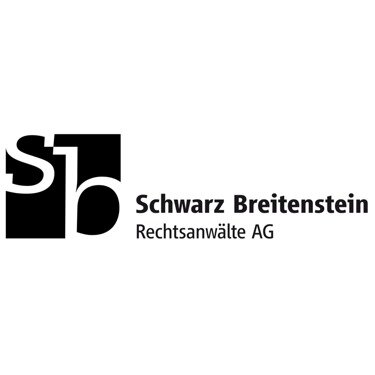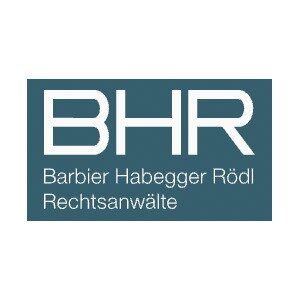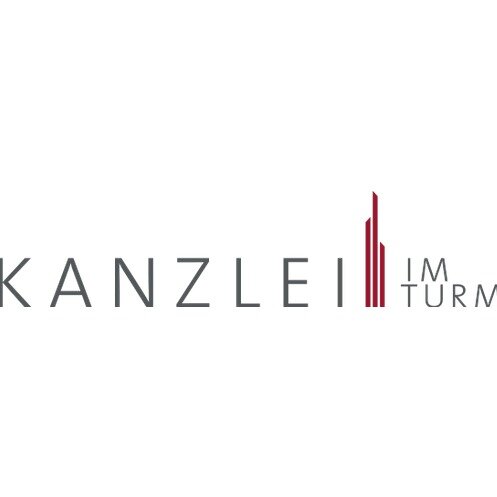Best Conveyancing Lawyers in Winterthur
Share your needs with us, get contacted by law firms.
Free. Takes 2 min.
Free Guide to Hiring a Real Estate Lawyer
List of the best lawyers in Winterthur, Switzerland
About Conveyancing Law in Winterthur, Switzerland
Conveyancing is the legal process involved in transferring the ownership of real estate from one party to another. In Winterthur, Switzerland, this process is regulated by both Swiss federal laws and the cantonal laws of Zurich, which have specific requirements and procedures. Conveyancing encompasses drafting sale agreements, conducting property searches, verifying title, handling funds, and registering the transfer with the appropriate land registry office. Due diligence and precision are crucial since property transactions are often significant financial investments.
Why You May Need a Lawyer
While it is possible to handle some aspects of conveyancing independently, engaging a legal professional is highly recommended. Here are some situations where people in Winterthur typically require legal help with conveyancing:
- When buying or selling real estate, especially for the first time
- If there are complex ownership structures, such as shared ownership or inheritance matters
- When reviewing and negotiating contracts to ensure fair terms
- If you need assistance in understanding legal obligations, taxes, or regulations
- To resolve disputes regarding property boundaries, easements, or access rights
- If there are outstanding mortgages, debts, or encumbrances on the property
- Dealing with foreign buyers or sellers where local legal knowledge is vital
- If you are transferring property as a gift or part of an estate plan
A lawyer's expertise helps minimize risks, prevents costly mistakes, and ensures the transaction complies with all legal requirements.
Local Laws Overview
Conveyancing in Winterthur must comply with Swiss federal and Zurich cantonal property laws. Key aspects of these regulations include:
- Land Registry Requirement: All real estate transfers must be notarized and registered in the municipal land registry (Grundbuch).
- Notarial Authentication: Sale contracts must be executed before a public notary. This step is legally required for validity.
- Due Diligence: Comprehensive property searches are conducted to check for encumbrances, restrictions, or existing mortgages.
- Pre-emptive Rights: Certain properties might be subject to pre-emptive rights by municipalities or tenants.
- Foreign Ownership: Non-Swiss citizens may face restrictions or need special permits to purchase certain types of property.
- Taxation: The buyer pays real estate transfer taxes and notarial fees. Also, certain capital gains taxes might apply to sellers.
- Purchase Financing: Banks require clear, registrable title and verification of property value before granting mortgages.
Understanding these points is essential to avoid delays or legal complications.
Frequently Asked Questions
What does a conveyancing lawyer do in Winterthur?
A conveyancing lawyer prepares and reviews legal documents, conducts property searches, liaises with notaries and authorities, and ensures that the transaction is compliant with Swiss and cantonal law.
Is using a lawyer mandatory for conveyancing in Winterthur?
It is not legally mandatory to hire a lawyer, but it is essential to work with a notary, as notarization is required. Engaging a lawyer is strongly advised to protect your interests and help navigate the complexities of Swiss property law.
How long does the conveyancing process take?
The process can typically take between 2 to 8 weeks, depending on the complexity of the transaction and the responsiveness of all parties involved.
Are there restrictions on foreign buyers?
Yes, Swiss law imposes certain restrictions on foreigners purchasing property. Some property types, like secondary residences or holiday homes, may require special permits.
What is the Grundbuch?
The Grundbuch is the official land registry in Switzerland. It records all property ownership and rights, and any change in ownership must be registered here to be legally effective.
Who pays the conveyancing costs?
The buyer typically pays for most costs, including notary fees, land registry fees, and property transfer taxes, although parties may agree to split certain costs differently.
What happens if there are disputes after the sale?
Disputes can be resolved through negotiation, mediation, or-if necessary-by taking the matter to the local courts. Legal representation is highly recommended.
Can I back out of a signed sale contract?
Once notarized, sale contracts are legally binding. Withdrawing can result in penalties or compensation claims unless the contract specifies valid conditions for withdrawal.
Are mortgages common in Swiss conveyancing?
Yes, most buyers use mortgages. The bank will only release funds once all legal requirements are satisfied and the property can be registered to the buyer.
Do I need to be present in Switzerland during the process?
While being present is beneficial, it is possible to grant power of attorney to a trusted individual or your lawyer to act on your behalf during certain steps of the process.
Additional Resources
If you need more information or assistance regarding conveyancing in Winterthur, consider these resources:
- Winterthur Stadtverwaltung (City Administration) - Provides information on land registration and municipal procedures
- Grundbuchamt Kanton Zürich (Zurich Land Registry Office) - Handles official property registrations and records
- Swiss Bar Association - Offers directories to qualified property and real estate lawyers in the Zurich region
- Notary offices in Winterthur - Local notaries work closely with buyers and sellers for contract authentication
- Kantonales Steueramt Zürich (Cantonal Tax Office) - For property tax advice and guidance regarding transfer duties
Next Steps
If you are considering buying or selling property in Winterthur, Switzerland, your first step should be to consult with an experienced local lawyer or notary. Prepare relevant documents and clarify your questions in advance. Working with a legal professional ensures that every aspect of the transaction is handled correctly, deadlines are met, and your interests are protected. You may want to research and contact qualified lawyers or notaries, gather all property-related documents, and inquire about estimated costs and timelines. Always verify your advisor’s credentials and ensure transparency about fees before proceeding.
Investing in professional advice can save you from costly legal challenges and provide peace of mind throughout your property transaction.
Lawzana helps you find the best lawyers and law firms in Winterthur through a curated and pre-screened list of qualified legal professionals. Our platform offers rankings and detailed profiles of attorneys and law firms, allowing you to compare based on practice areas, including Conveyancing, experience, and client feedback.
Each profile includes a description of the firm's areas of practice, client reviews, team members and partners, year of establishment, spoken languages, office locations, contact information, social media presence, and any published articles or resources. Most firms on our platform speak English and are experienced in both local and international legal matters.
Get a quote from top-rated law firms in Winterthur, Switzerland — quickly, securely, and without unnecessary hassle.
Disclaimer:
The information provided on this page is for general informational purposes only and does not constitute legal advice. While we strive to ensure the accuracy and relevance of the content, legal information may change over time, and interpretations of the law can vary. You should always consult with a qualified legal professional for advice specific to your situation.
We disclaim all liability for actions taken or not taken based on the content of this page. If you believe any information is incorrect or outdated, please contact us, and we will review and update it where appropriate.












